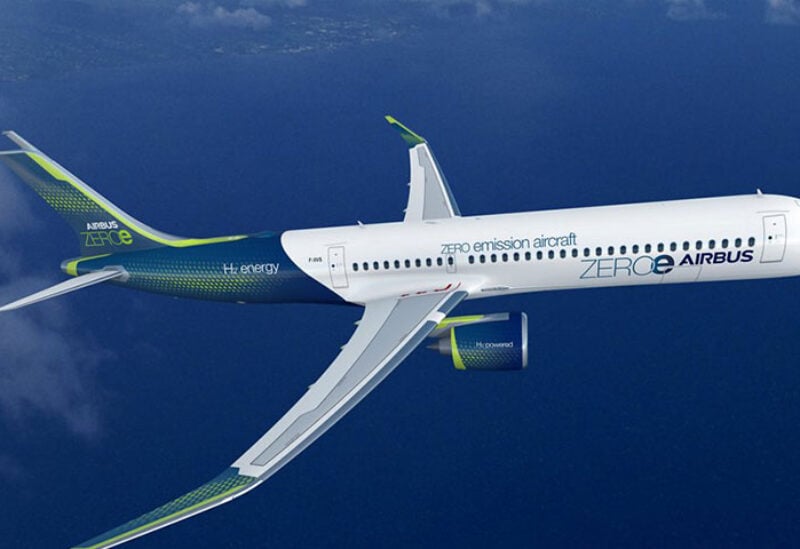
Airbus revealed Friday the carbon footprint of its aircraft, a move that will help measure progress made by the aviation industry towards its goal of reducing emissions.
It is the first time an aircraft manufacturer has released lifetime carbon emissions of its aircraft, and Airbus executive vice president corporate affairs Julie Kitcher said it was an opportunity to increase transparency in the sector.
“We really want to demonstrate our commitment to driving decarburization of the sector,” she said.
The industry currently represents 2 percent of global CO2 emissions, according to the International Civil Aviation Organization, but a forecast rise in passenger air traffic means it could add more pollution to the skies unless measures are taken rapidly.
Airbus calculated that the 863 planes that it delivered in 2019 will emit 740 million tons of CO2 during an estimated 22 years in service.
As a point of comparison, France is estimated to have emitted 441 million tons of CO2 in 2019.
Airbus used the accounting measure for emissions used by most leading firms, the Greenhouse Gas Protocol, including measuring the use of its products by consumers.
Airbus pointed out, however, that the efficiency of its planes is improving.
It calculated that the planes delivered in 2019 will produce on average 66.6 grams of CO2 per passenger per kilometre.
In 2020, that figure dropped to 63.5 grams per passenger kilometer.
The current commercial aircraft fleet, including older aircraft, is estimated to emit on average 90 grams per passenger kilometre, according to the NGO International Council on Clean Transportation.
Last year Airbus released three zero-emission concept planes powered by hydrogen that it said could enter service by 2035.
The aviation industry is also counting on better air traffic control and efficiency gains from engines to reduce CO2 emissions.